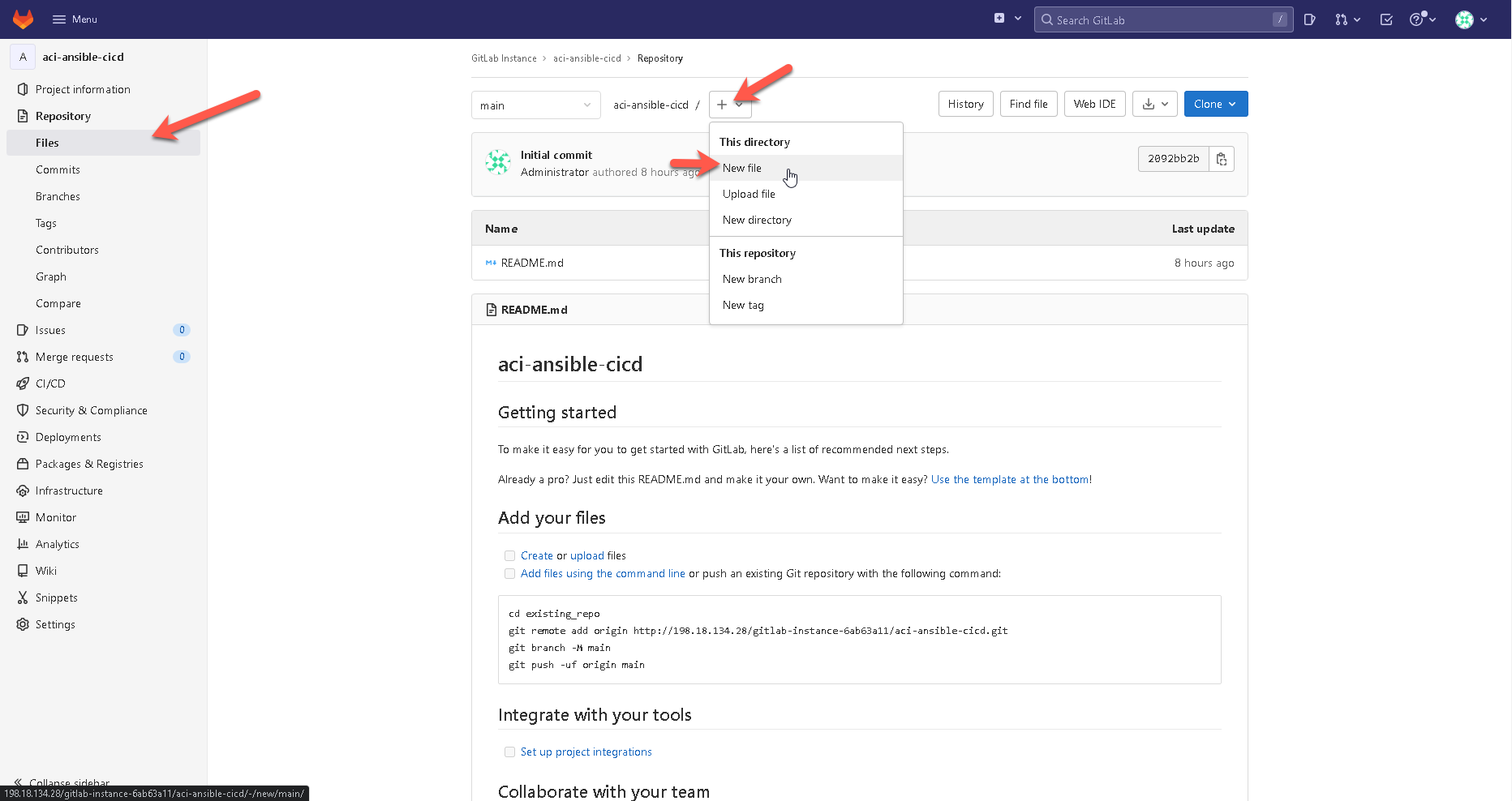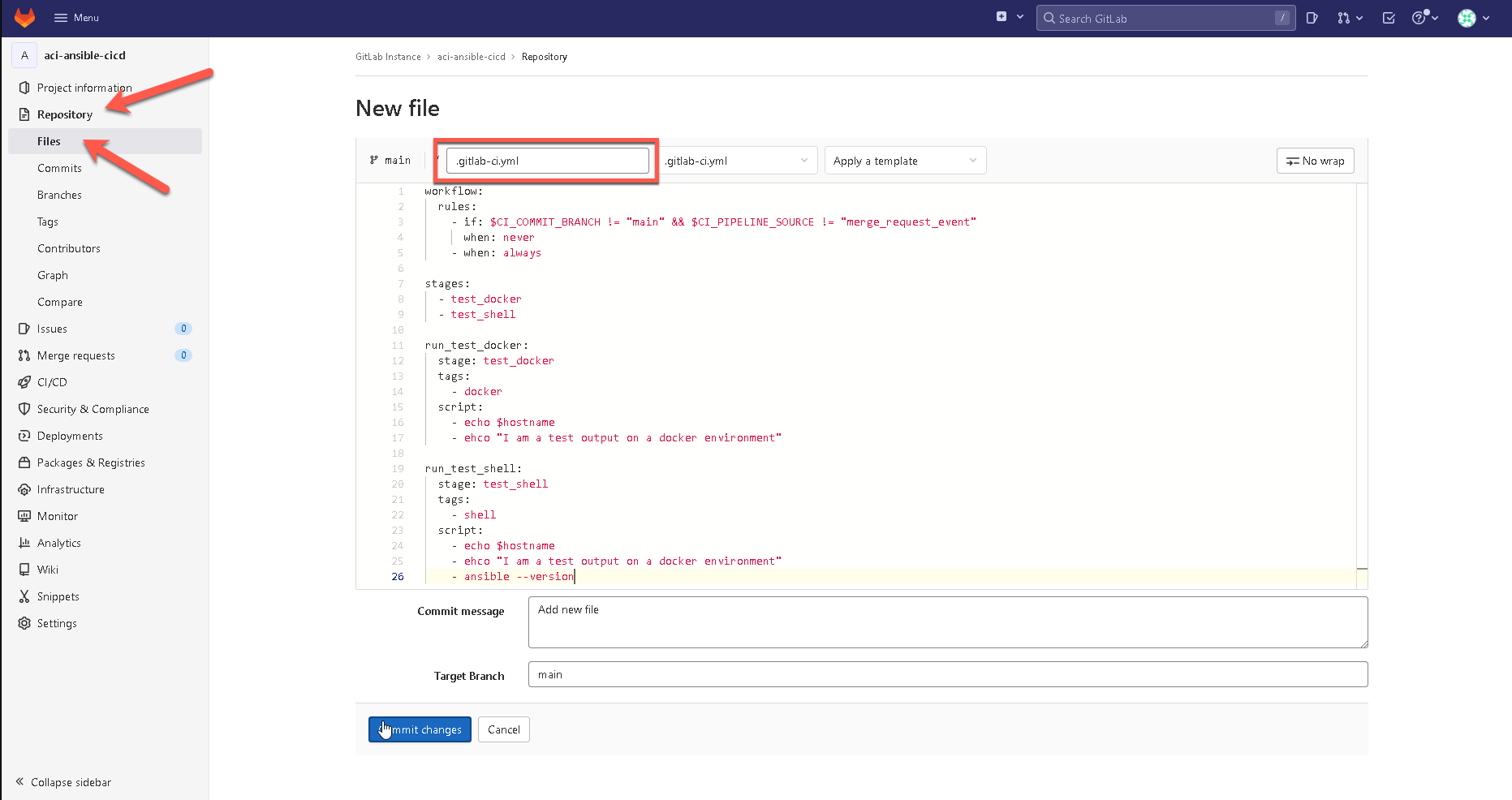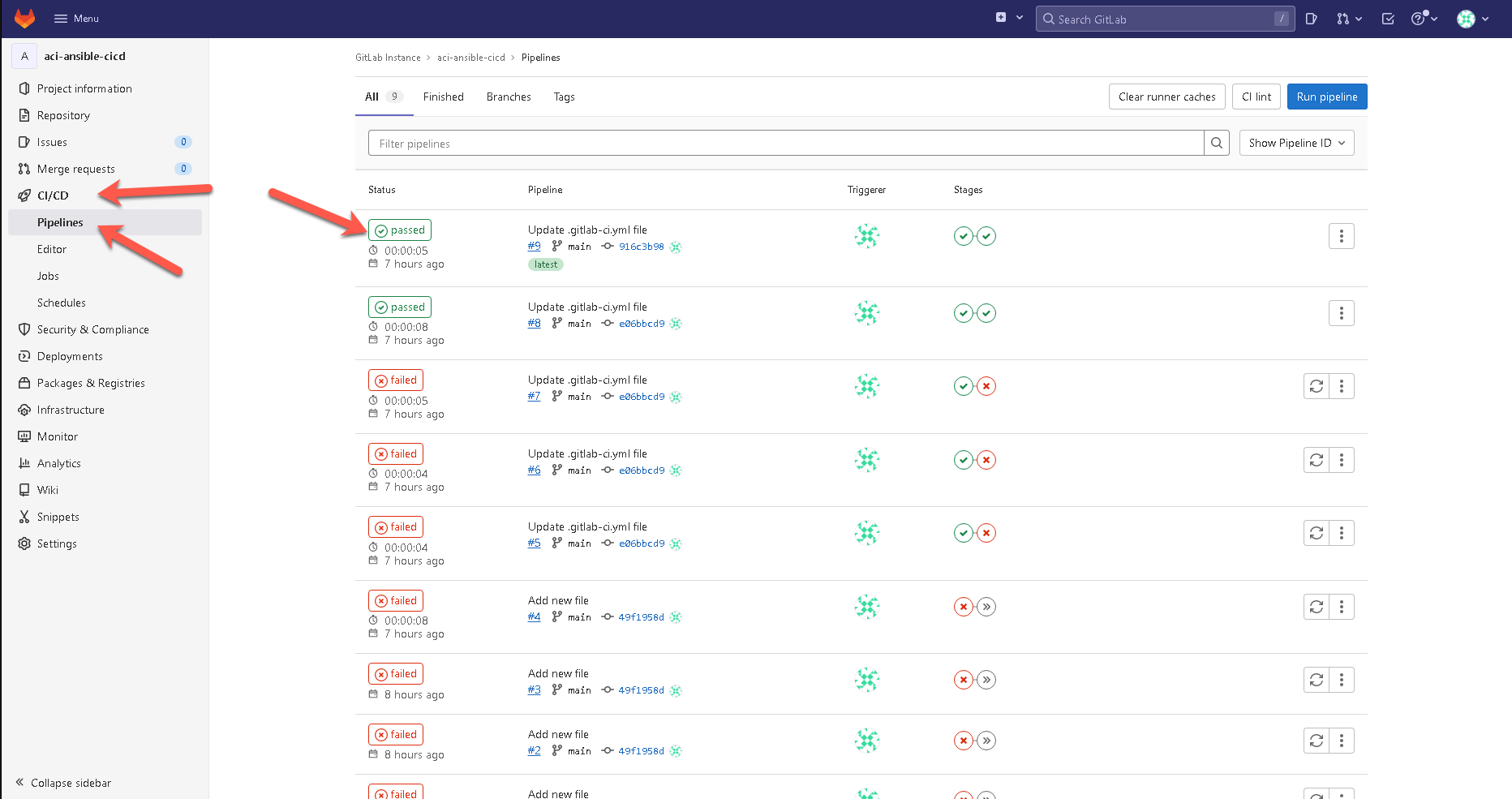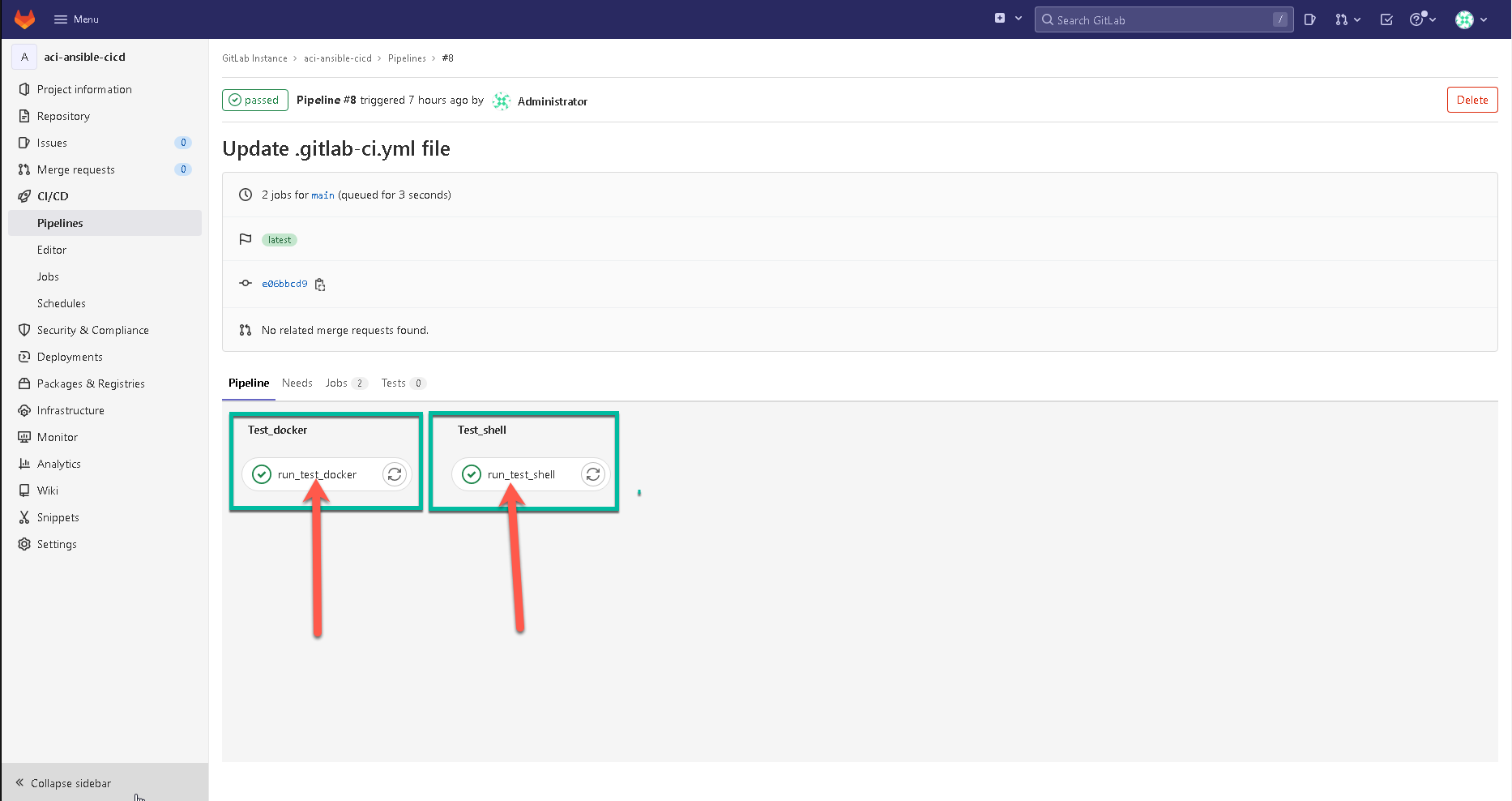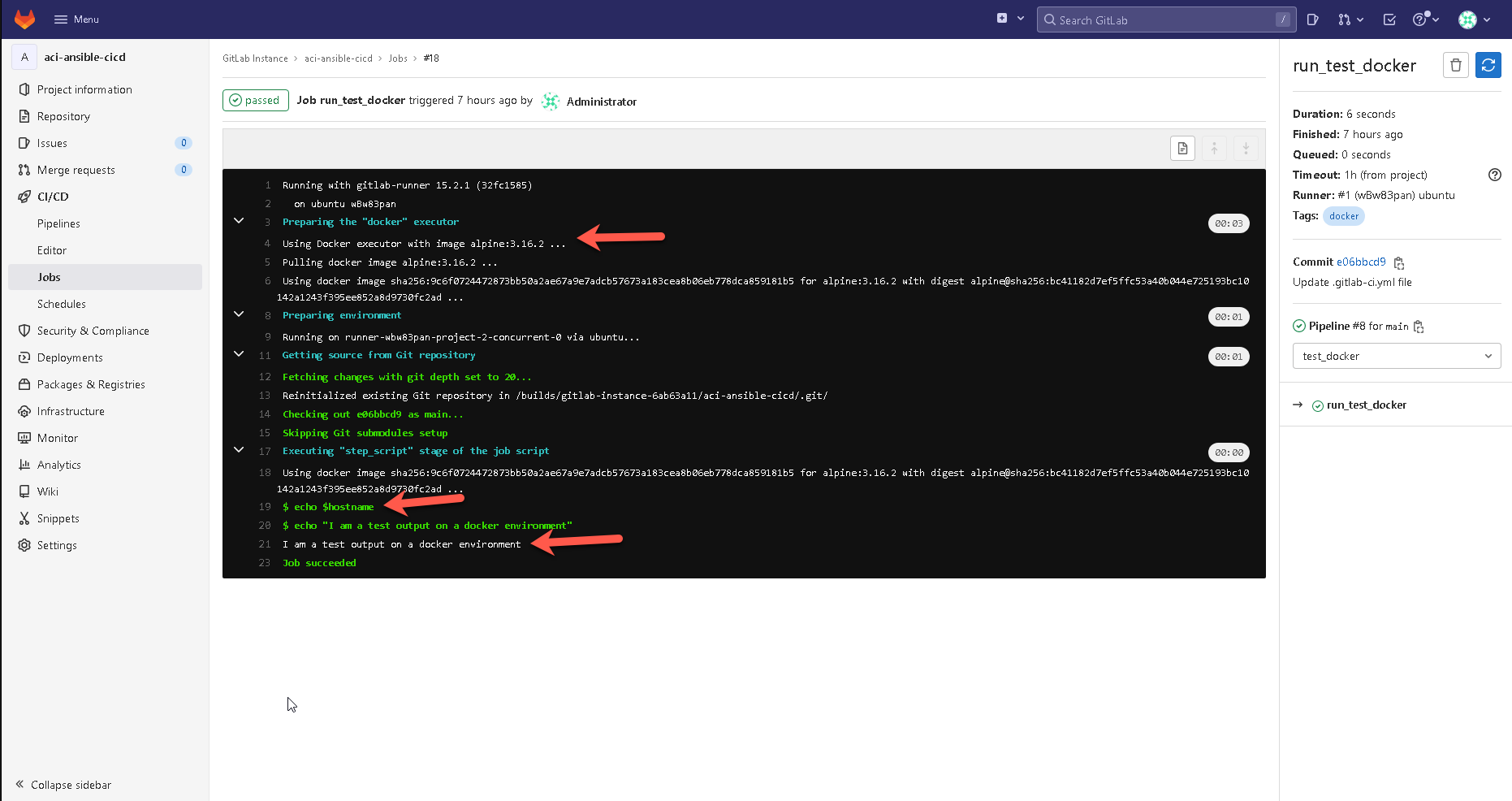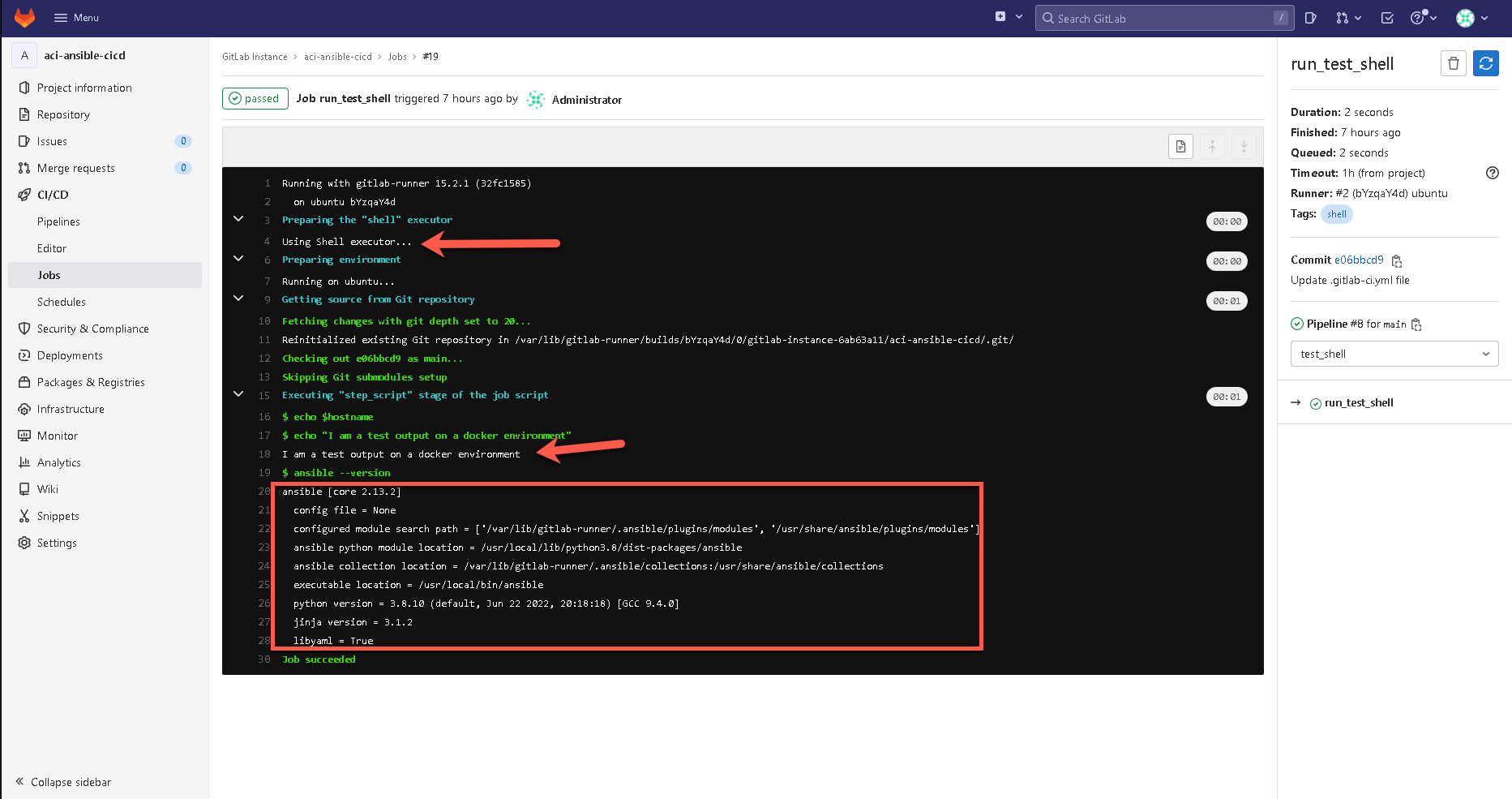Table of Contents
Create the pipeline file
Alright! This is the moment we have been waiting for. Let’s build the first pipeline.
Go to Repository > Files , Click on the + symbol and New File
A new window will open with an editor view. The new name of the file is: .gitlab-ci.yml
Please copy and paste the filename. Yes, it is starting with a . (dot)
In the editor window, copy and paste the following content and submit the changes:
Content of the pipeline file
workflow:
rules:
- if: $CI_COMMIT_BRANCH != "main" && $CI_PIPELINE_SOURCE != "merge_request_event"
when: never
- when: always
stages:
- test_docker
- test_shell
run_test_docker:
stage: test_docker
tags:
- docker
script:
- echo $HOSTNAME
- echo "I am a test output on a docker environment"
run_test_shell:
stage: test_shell
tags:
- shell
script:
- echo $HOSTNAME
- echo "I am a test output on a shell environment"
- ansible --version
Explanation
What exactly are we doing here?!
- First of all we are defining rules when the pipeline should be executed
- In this case when we are in the main branch and a merge request is created
- We define stages for your pipeline
- The first task is “run_test_docker” and this will be part of the “test_docker” stage
- The tag defines on which gitlab-runner it will be executed
- The script section defines which commands will be executed on the shell inside of the docker
- The next task run in the “test_shell” stage and runs on the shell gitlab-runner
Check the pipeline execution
Whenever you are submitting changes in the entire repository, the pipeline will be triggered! Let’s check the status of the pipeline execution. Click on CI/CD and Pipelines then click on the (hopefully😉) passed pipeline execution.
Click on each job to see what exactly has been executed in the each job:
Docker execution output
Shell execution output
Go back to CI/CD and click on Editor. Try to experiment and get familiar with the syntax of the pipeline code.
Try to do the following steps:
- Run “ansible –version” in the “test_docker” stage
- Run wrong commands
- Try to add more tasks per stage
- Test before_script and after script in the tasks
References
As a command reference you can go to the following GitLab documentation:
- .gitlab-ci.yml command reference: https://docs.gitlab.com/ee/ci/yaml/
- Official Template examples https://docs.gitlab.com/ee/ci/examples/


